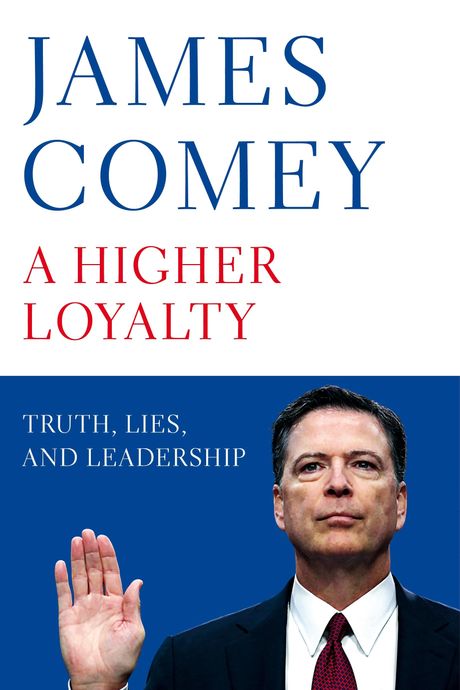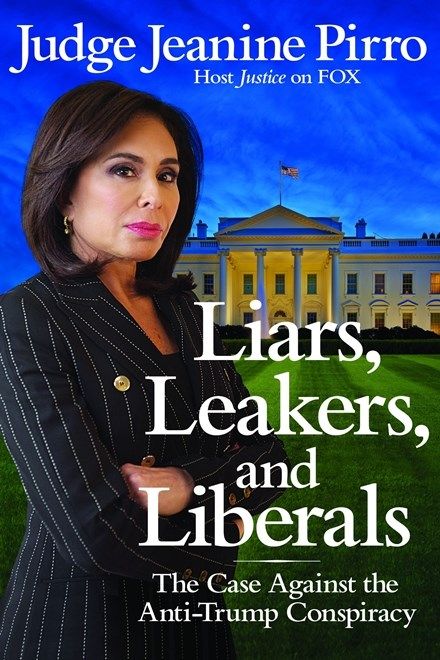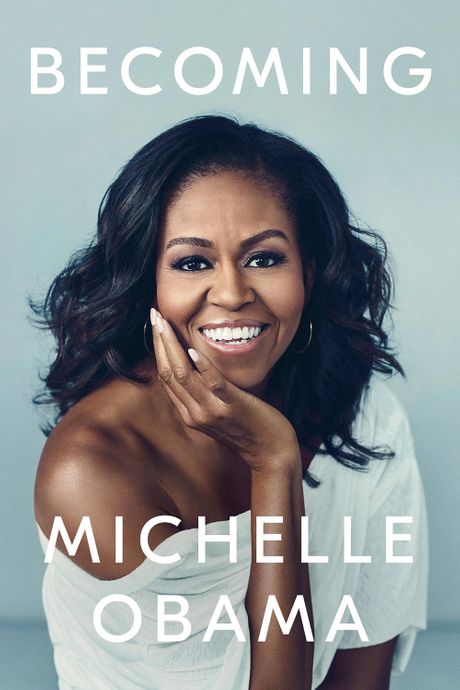
Last month, when the editors of Publishers Weekly convened to discuss their annual Person of the Year issue, the meeting was unusually contentious. It wasn’t that they disagreed, exactly. Some years, the choice is pretty clear. In 2012, when Fifty Shades of Grey introduced Middle America to bondage sex, sparking a lucrative trend of copycat erotica, E.L. James was the only plausible candidate. This year, too, one figure dominated the industry, absorbing readers’ attention as a black hole absorbs all light. “There’s no denying Trump has sparked an avalanche of book sales,” said Jim Milliot, PW’s editorial director. But after weeks of debate, the staff didn’t pick him. Milliot wouldn’t divulge the ultimate choice before the late December reveal, but he did clarify their decision to reject the president: “We were afraid that no matter how we explained it, if we put him on the cover, it would look like Publishers Weekly had endorsed Trump.”
Similarly agonized conversations pervaded the mostly liberal book world in 2018 — a year in which publicists cursed His Bankable Name over media lunches while working it into every jacket and press release where it made the least bit of sense. On the one hand, there was a sense of relief that, in a relatively flat sales environment where no fiction had sold more than a million copies since 2015 (when Trump descended the golden escalator), a few nonfiction chronicles had tent-poled the industry. But there was also an unmistakable air of embarrassment over these riches — and a sense of loss for the sleeper hits that might have been, if there had just been a little more media oxygen in the world. Knopf Publicity VP Nicholas Latimer summed it up in one line, and a pained expression. ‘We don’t have any” Trump books, he said. “I wish we did, but I’m glad we don’t.”
Among the many things Trump likes to brag about, perhaps the most verifiable is what a boon he’s been for the media outlets he holds in such (mutual) contempt. The same goes for book publishers — many of them owned by media giants. Most of the year’s best-selling books have been connected to the president in one way or another. (Then there are self-help books but, well, people need help.) Michael Wolff’s juicy insider account of Trump’s first year in office, Fire and Fury, has so far sold more than two and a half million copies in all formats, and Bob Woodward’s Fear sold 1.1 million copies in its first week alone — a record for Simon & Schuster. Fired FBI Director James Comey’s A Higher Loyalty, which took time out from upholding democratic norms to mock Trump’s small hands and orange skin, came in third among the tell-alls, selling a million copies since April.
Trump isn’t the first president who’s been good for the books. After John F. Kennedy told a reporter that he was a fan of James Bond, the spy novels leapt onto the bestseller list, and when Barack Obama included Lush Life on his summer vacation reading list, sales of the Richard Price novel doubled. President Trump, no reader himself, is another creature entirely. Last Thursday, between attacks on Mueller, he tweet-stormed recommendations of several books about how great he was and how much his enemies sucked. But those tweets haven’t had much impact. It’s as a subject, rather than an endorser, that Trump blows every other president out of the water.
Allison Risbridger, an industry analyst with NPD BookScan, compared political-book sales under Trump’s first two years to those under Obama’s and found striking differences. Under Trump, sales have grown by double-digits each year — up 32% through November compared to the same period in 2017 — whereas they fell off rapidly in Obama’s second year. The volume of published political books hasn’t grown, but sales have exploded — 4.2 million copies so far this year compared to 2.7 million in 2010. “And the contents are different,” Risbridger added. The big sellers under Obama were Bush’s memoir and Game Change, about the 2008 campaign. This year’s blockbusters were ripped from (and fed) the headlines — and all of them were about you-know-who.
Therein lies the conundrum for publishers. Although the Trump bump has been a boon to the entire industry, some in publishing worry that it’s pushed all other topics into the shadows. Even Amy Einhorn, James Comey’s editor and publisher, was ambivalent about the subject of her big seller. “While I’m sure many would say he’s had a good effect on publishing, I’m not sure I’d be one of them,” she wrote in an email. “I think the people who are buying Trump books are book buyers who are not buying books in other areas they’d usually be buying. Trump sucks the oxygen out of the room in everything he touches.”
When people in publishing say “oxygen,” they usually mean publicity. “What hurts is just how frenetic the news cycle has become,” said Alessandra Bastagli, the executive editor of Dey Street Books. Publicity campaigns typically begin some six months prior to publication, culminating, ideally, the week of the book’s release. “It used to be that you could be pretty confident how it would all play out,” she explained. “Now, you could have an author writing on any given subject, including a Trump-related subject, and then Trump sends out a tweet about something else that morning — like the ‘migrant caravan’ — and suddenly your author gets bumped from all the shows. Once you lose your slot, it’s not easy to get the author back in.”
It can be even worse for fiction authors. “It’s the distraction,” said Anna Stein, a literary agent at ICM. “There were a lot of people who couldn’t even read fiction for months after the election. And now, those people are still buying fewer novels because they spend all of their free time reading the latest from Washington.” She added that there’s an obvious upside: “If a book is selling, that publisher is flush and they’re able to do more than they were the year before. I don’t think there’s tons of resentment, because there are years when nothing works.”
The biggest books this year were critical of the president, but conservatives have benefited, too. In 2015, Fox TV prosecutor Jeanine Pirro sold a scant 10,000 copies of a book about Robert Durst, but this year her jeremiad, Liars, Leakers, and Liberals: The Case Against the Anti-Trump Conspiracy, sold 200,000 in hardback alone. Eric Nelson, editorial director of the conservative Broadside Books, said he’s published five best sellers this year, all Trump-themed (including The Russia Hoax, with 230,000 copies through November per Bookscan). As Nelson sees it, people want to read about Trump for the same reason they follow him on Twitter and flock to his rallies. “Trump doesn’t have a policy agenda, not really, so he’s not afraid to say twelve interesting things in a day.” Which is not to say that last week’s tweets, endorsing The Russia Hoax and Pirro’s book among others, helped sales; there was no bump for those books reported by Amazon’s sales tracker. “People are not going to Trump’s twitter account for book recommendations,” Nelson said.
Nor is Trump a foolproof sales multiplier. Sean Spicer’s book sold about as well as Trump-branded steaks. (Not well.) Don Jr. reportedly couldn’t persuade anyone to give him a book deal. Publishing is always a gamble, even when the most attention-grabbing president in history is on the cover. When Comey’s book proposal was first making the rounds, some publishers were skeptical — including the one who ultimately bought the book for a reported two million dollars. “Before meeting Comey, we were dubious,” Einhorn told me. “Everyone on the left hated him and everyone on the right hated him as well. But the meeting completely changed how we thought about the project. Comey is a born storyteller.”
Steve Rubin, Michael Wolff’s editor and the president and publisher of Henry Holt & Company, said he felt the same professional tingle reading Wolff’s proposal as he did when he read (and acquired) Dan Brown’s The Da Vinci Code some fifteen years earlier. “In both cases,” he said, “I remember my jaw dropping 500 times as I read the manuscript, and everyone I showed it to felt exactly the same way.” In the months since Fire and Fury was published, Rubin has been inundated with other Trump-related submissions, most of which he’s declined. “I can’t tell you how many books we’ve turned down about Trump,” because of poor writing or what he calls “the scuzz factor.” Then again, Omarosa Manigault’s Unhinged seemed too petty and vindictive to Rubin, but it’s sold more than 85,000 hardcover copies.
None of the publishing insiders I spoke to predicted that the hunger for such books would abate any time soon. Despite believing there are “too many Trump books out there now,” Rubin promises his own “secret” Trump book for next year. “As the president continues to astound us on a daily basis, if we can get books out there fast enough to take advantage of the insane news cycle, I think we’re fine.” Paul Bogaards, Knopf’s publicity director, tried to take the long view. “It’s a trend, okay? Trends don’t last forever. The question now is, how much more can be written about this administration?”
There’s one sort of book that may be able to compete: those that play on our nostalgia for a time when other things mattered and Trump didn’t. The bestselling fiction title of the year was The President Is Missing, a political thriller co-written by Bill Clinton. And the bestselling nonfiction book is Michelle Obama’s Becoming, which over two weeks shattered records by selling two million copies.
Becoming has the distinction of being not about Trump — and yet, because of the world we live in, its success is something for which, alas, he can also take some credit. “Given both the anti-Trump sentiment, and the Obama nostalgia, books that deal with those themes have set record sales for us and many other booksellers,” said Bradley Graham, the co-owner of Politics and Prose, a Washington, D.C. bookstore that had a banner year. “This whole period has been somewhat of a bonanza,” he added. “It’s one of the few silver linings of the era.”





